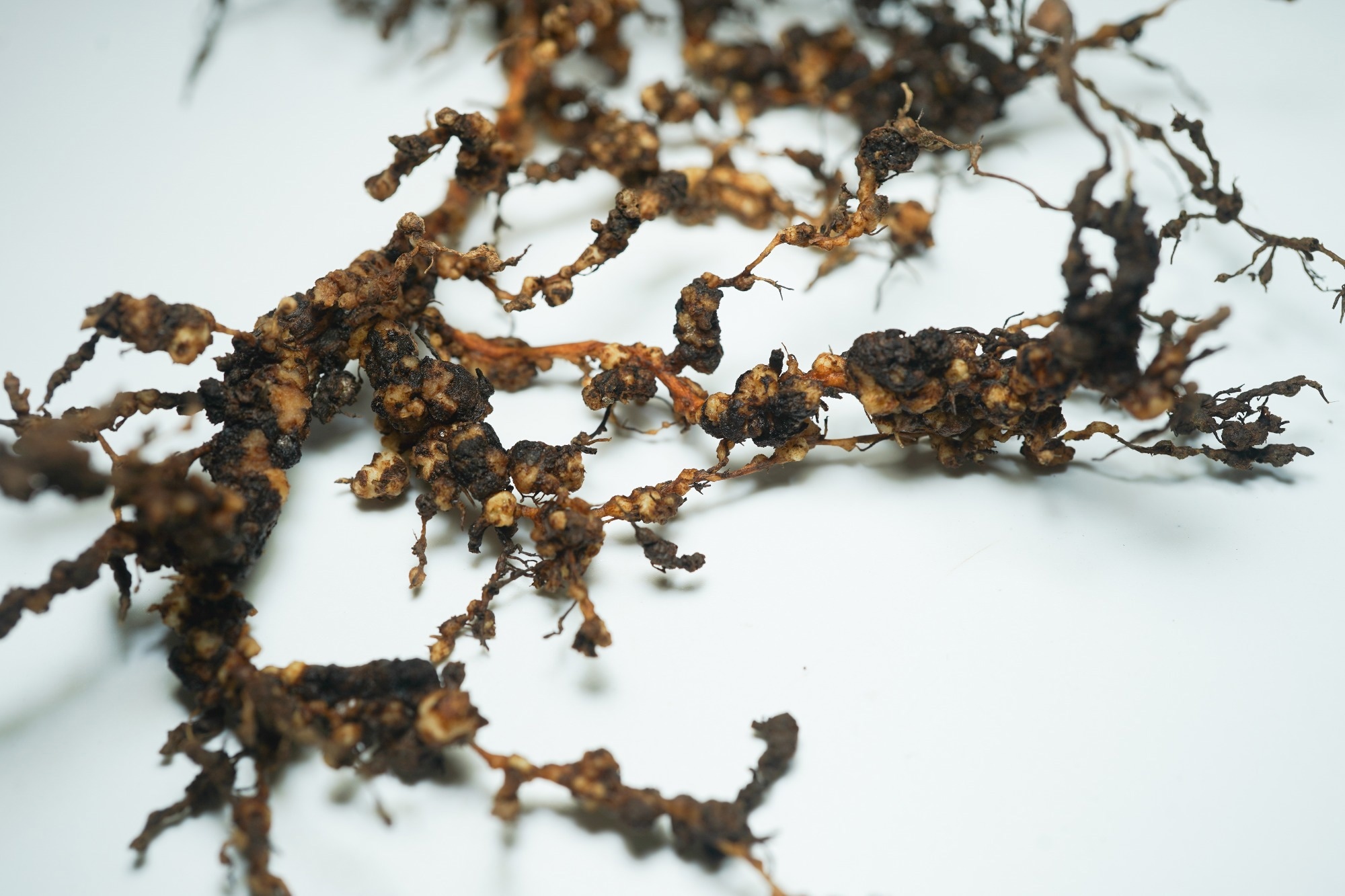A new study explores an eco-friendly alternative for managing root-knot nematodes in eggplants. Nano-formulations of silver nanoparticles and garlic oil can provide effective pest control and significantly enhance plant growth and yield in real-world conditions.

Image Credit: Aunyaluck/Shutterstock.com
This breakthrough, detailed in Scientific Reports, highlights the potential use of nanotechnology to enhance biological and botanical pest control methods to advance sustainable agriculture.
Eggplants, widely cultivated and a key crop in Egypt, often suffer from infestations by Meloidogyne incognita, a root-knot nematode that forms galls on roots, reduces plant vigor, and decreases crop yields. Traditionally, synthetic nematicides have been used to control the disease; however, their environmental and health-related drawbacks have pushed researchers to explore safer alternatives.
Research has presented two sustainable alternatives: biological agents such as Bacillus cereus that can produce metabolites with nematocidal properties, and plant-derived compounds, like garlic essential oil, that offer natural inhibition of nematodes.
Combined with nanotechnology, these biological and botanical tools can become even more effective, benefiting from improved delivery systems and increased stability.
Silver nanoparticles (Ag-NPs) are already recognized for their antimicrobial and pest control abilities, particularly Ag-NPs biosynthesized using endophytic bacteria. Similarly, due to their small particle size, nanoemulsions of garlic oil can enhance the efficacy of active ingredients by improving their absorption and interaction with pests.
These innovations offer an eco-friendly alternative to synthetic nematicides and simultaneously support healthier crop development.
The Current Study
In this field-based study, researchers applied nano-formulations to eggplant seedlings from a research center in Giza, Egypt. They treated seedlings with biosynthesized silver nanoparticles from B. cereus Nem 212, garlic oil in both standard and nanoemulsion forms, and chemical controls such as silver nitrate.
The nano-formulations were applied at planting and again, where possible, one month later to assess the effect of application frequency on pest control and plant performance.
Each treatment was repeated five times for statistical validity. The silver nanoparticles were created using bacterial filtrates, while garlic oil emulsions were stabilized to ensure consistent application in the field. All treatments were delivered at a uniform dose of 10 mL per plant.
To evaluate the treatment's efficacy, researchers monitored nematode populations, specifically egg and second-stage juvenile (J2) counts, and plant growth indicators such as height, leaf number, flower count, fruit weight, and overall yield.
The collected data were analyzed using ANOVA, with Duncan’s Multiple Range Test used to identify significant differences between treatments. The researchers also measured the percentage reduction in nematode populations compared to untreated controls, providing a comprehensive view of each treatment’s impact.
Results and Discussion
The study's findings were compelling. Both biosynthesized silver nanoparticles and garlic oil nanoemulsions significantly suppressed nematode reproduction, with nano-formulations outperforming their conventional counterparts.
The garlic oil nanoemulsion was particularly successful, delivering the highest reduction in egg and J2 populations. Researchers attributed this effectiveness to the small particle size of this nano-formulation, which improves its ability to penetrate nematode cuticles and disrupt development.
Biosynthesized silver nanoparticles also showed strong nematicidal activity, evidencing their viability as an eco-friendly pesticide. Their nanoscale properties (small size and negative surface charge) enhanced stability and allowed better dispersion of the formulation into the soil, improving efficacy.
The nanoformulations showed further application beyond pest control, with eggplants exhibiting improved growth after treatment. This included increases in plant height, leaf production, flowering, and fruit weight. Garlic oil nanoemulsions were particularly influential, boosting fruit weight by more than 86 % compared to the control. These results show the treatment's potential for boosting productivity alongside pest management.
Download your PDF copy now!
Conclusion
This study highlights the potential of nanotechnology-enhanced natural formulations as practical tools for sustainable nematode control in eggplant cultivation.
By reducing reliance on chemical nematicides and improving crop outcomes, these treatments are both environmentally and biologically safe. However, further research is needed to refine dosages, optimize application schedules, and assess long-term environmental and economic impacts across diverse agricultural systems.
Journal Reference
Osman H.A. et al. (2025). Comparative field study of silver nanoparticles and garlic oil nanoemulsion for nematode control and yield enhancement in eggplant. Scientific Reports 15, 20220. DOI: 10.1038/s41598-025-06697-0, https://www.nature.com/articles/s41598-025-06697-0